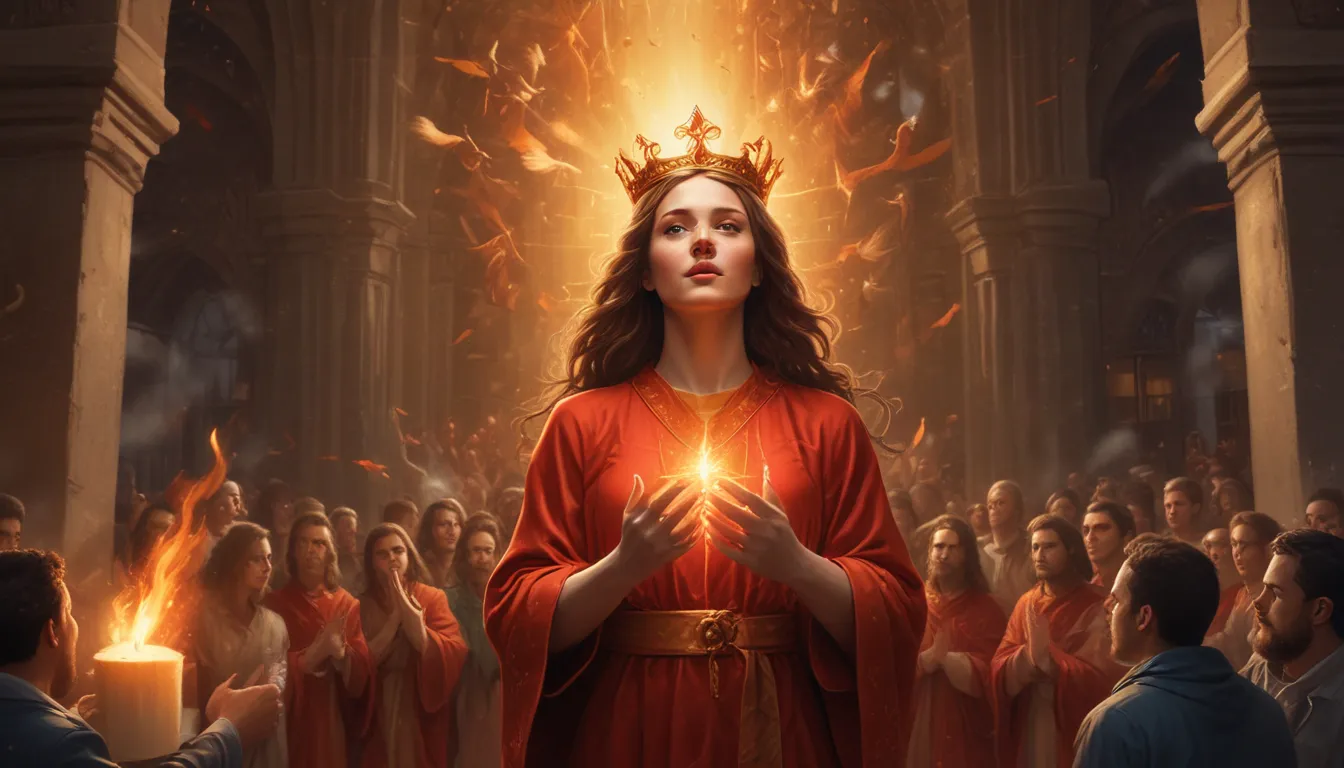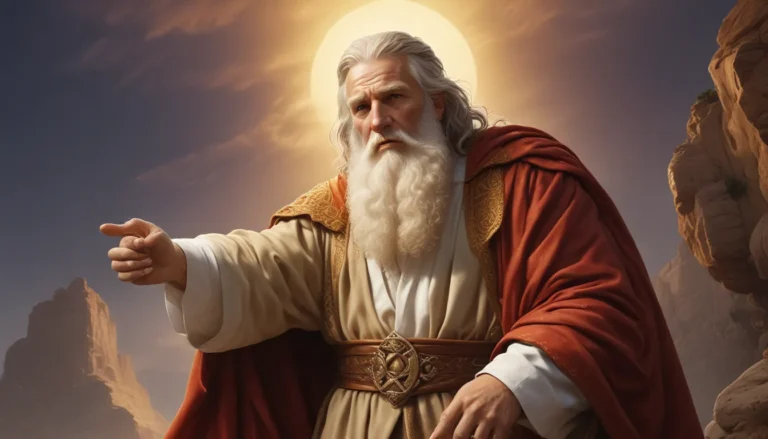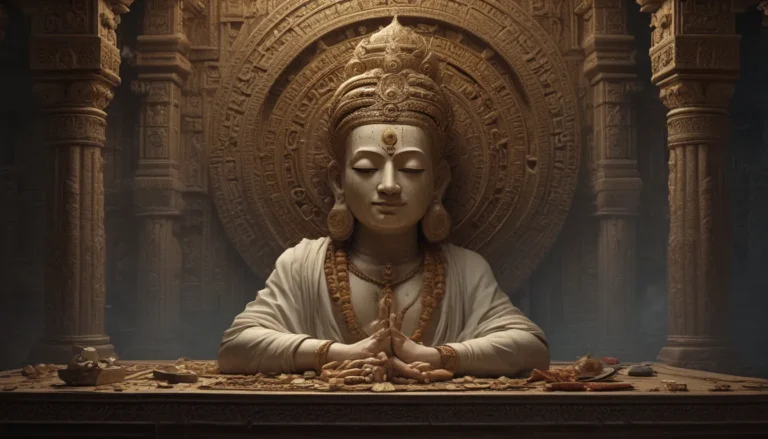The images in our articles may not match the content exactly. They are used to grab your attention, not to show the exact details in the text. The images complement the text but do not replace it.
Welcome to the exploration of the rich tapestry of Pentecost, a pivotal moment in Christian history that marks the birth of the Church and the descent of the Holy Spirit upon the apostles and followers of Jesus Christ. This vibrant event, celebrated fifty days after Easter, holds profound significance in Christian theology and shapes the universal church’s formation. Join us as we delve into the intricate details of Pentecost, uncovering its origins, biblical accounts, symbols, traditions, and modern-day celebrations. Let’s embark on a journey of enlightenment and understanding as we unravel the mysteries of Pentecost together.
What Is Pentecost?
Pentecost stands as a significant event in Christian tradition, symbolizing the birth of the Church through the descent of the Holy Spirit upon the apostles and followers of Jesus Christ. This sacred occasion, occurring on the fiftieth day after Easter, marks the beginning of the Church’s mission in the world, spreading the teachings of Jesus to all nations.
Origins of Pentecost
-
Shavuot Connection: Originally a Jewish holiday known as Shavuot, Pentecost was celebrated fifty days after Passover, commemorating the giving of the Torah to Moses at Mount Sinai.
-
Meaning of Pentecost: The term “Pentecost” originates from the Greek word “pent?kost?,” meaning fiftieth, representing the fifty days that have passed since Easter Sunday, linking the Old and New Testaments in Christian theology.
The Biblical Account of Pentecost
-
Descent of the Holy Spirit: According to the Acts of the Apostles in the New Testament, Pentecost is when the Holy Spirit descended upon the apostles in the form of fiery tongues. This empowered them to speak in foreign languages, enabling them to spread the message of Jesus Christ across diverse cultures and nations.
-
Role of Apostle Peter: Apostle Peter played a pivotal role during Pentecost by delivering a sermon that led to the conversion and baptism of about 3,000 individuals, emphasizing the transformative power of the Holy Spirit.
Symbols of Pentecost
-
Flames and Doves: Common symbols of Pentecost include flames or tongues of fire, representing the Holy Spirit’s descent, and doves symbolizing peace and the presence of the Holy Spirit.
-
Color Symbolism: Red is the liturgical color of Pentecost, symbolizing the fire of the Holy Spirit, often reflected in church decorations and attire during Pentecost services.
Pentecost Traditions Around the World
-
Italy’s Rose Petals: In Italy, red rose petals are scattered from church ceilings to symbolize the Holy Spirit’s descent upon the apostles, adding a colorful and symbolic touch to Pentecost celebrations.
-
France’s Trumpets: Pentecost in France is marked by the blowing of trumpets during services, echoing the sound of the mighty wind that accompanied the Holy Spirit’s arrival, creating a vibrant and auditory tribute.
-
Orthodox Christian Kneeling Prayers: Some Orthodox Christian traditions observe Pentecost with “kneeling prayers,” a series of prayers recited for the first time since Easter, emphasizing reverence and solemnity in the celebration.
The Impact of Pentecost on Christianity
-
Birth of the Christian Church: Pentecost signifies the birth of the Christian Church and the commencement of its mission to spread the teachings of Jesus Christ globally, shaping the foundation of Christian faith and community.
-
Role of the Holy Spirit: Pentecost highlights the significance of the Holy Spirit in Christian theology as a guide and comforter for believers, emphasizing the spiritual empowerment and guidance provided by the Holy Spirit.
-
Universal Church Outreach: The event illustrates the universal nature of the Christian Church, symbolized by the apostles’ ability to speak in various languages, representing the Church’s mission to reach all people irrespective of their language or nationality.
Modern Celebrations of Pentecost
-
Church Services: Present-day Pentecost celebrations include church services featuring readings from the Acts of the Apostles, hymn singing, and prayers seeking the Holy Spirit’s guidance and presence.
-
Processions and Outdoor Celebrations: Some communities commemorate Pentecost with processions and outdoor festivities, reflecting the festive and public nature of the original event, fostering community spirit and joy.
-
Personal Reflection: Pentecost encourages personal reflection on the gifts of the Holy Spirit within the lives of believers, inviting introspection and gratitude for the presence of the Holy Spirit in individuals’ spiritual journeys.
Pentecost’s Place in the Liturgical Year
-
Conclusion of Easter Season: Pentecost marks the culmination of the Easter season in the Christian liturgical calendar, occurring ten days after Ascension Thursday, which commemorates Jesus’ ascension into heaven.
-
Whit Monday: The day following Pentecost, also known as Whit Monday or Pentecost Monday, serves as a public holiday in many countries, extending the celebratory spirit of Pentecost.
-
Ordinary Time: Following Pentecost, the Christian liturgical calendar enters the season known as “Ordinary Time,” characterized by growth and maturation in faith, inspired by the ongoing influence and guidance of the Holy Spirit.
-
Mission and Celebration: Pentecost serves as a poignant reminder of the Church’s mission to disseminate the gospel worldwide and celebrate the enduring power and presence of the Holy Spirit in the global community of believers.
Embracing the Spirit of Pentecost
As we journey through the vibrant tapestry of Pentecost, delving into its ancient roots, significant biblical accounts, global traditions, and modern-day celebrations, we uncover a sacred celebration that unites believers across cultures and generations. Pentecost serves as a beacon of unity, diversity, and spiritual empowerment, reminding us of the transformative power of the Holy Spirit in our lives and communities. Let us embrace the spirit of Pentecost, honoring our differences, and finding common ground in our shared humanity, as we continue to spread the message of love, unity, and peace in a world that yearns for such profound connections.
Your Feedback Matters
Your engagement and feedback are invaluable to us as we strive to deliver enriching and credible content that resonates with our readers. Each fact and insight shared on our platform is a testament to our commitment to authenticity and reliability. Trust in our dedication to quality as we embark on this enlightening journey together, exploring the depths of knowledge and understanding. Join us in uncovering the mysteries of Pentecost and celebrating the diverse tapestry of faith and unity it embodies.






